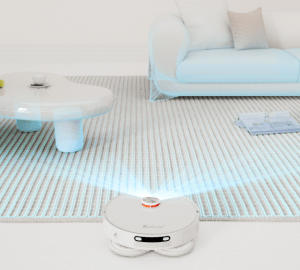Are you a night owl who struggles to get out of bed in the morning? Do you hit snooze on your alarm multiple times and feel groggy and unproductive throughout the day? If so, you may want to consider becoming a morning person.
There are several benefits to waking up early and establishing a consistent sleep routine. Not only can it improve your health and well-being, but it can also lead to increased productivity, better time management, and a more positive outlook on life.
In this article, we will explore the various reasons why becoming a morning person is beneficial and provide practical strategies for making the transition. Whether you’re a student, a busy professional, or just someone who wants to feel more energized and productive throughout the day, this article is for you. So grab a cup of coffee and let’s get started!
1. Gradually adjust your sleep schedule
One of the most important factors in becoming a morning person is getting enough sleep. However, if you’re used to staying up late and sleeping in, suddenly shifting your sleep schedule can be difficult. Instead, try gradually adjusting your sleep schedule by waking up just 15-30 minutes earlier each day. This will allow your body to adjust to the new schedule gradually, making it easier to wake up earlier in the morning.
2. Create a bedtime routine
Establishing a bedtime routine can help signal to your body that it’s time to wind down and prepare for sleep. Some effective bedtime routines include reading a book, taking a warm bath, or practicing meditation or relaxation techniques. Creating a consistent bedtime routine can help you fall asleep faster and wake up feeling more refreshed.
A study published in the journal Emotion found that people who wake up earlier tend to experience less stress and have better mental health compared to those who stay up late. The study, which surveyed over 700 adults, found that morning people reported feeling more positive emotions throughout the day and had lower levels of negative emotions such as anxiety and depression.
3. Limit caffeine and alcohol intake
Caffeine and alcohol can disrupt your sleep patterns and make it harder to wake up feeling rested. If you’re trying to become a morning person, it’s a good idea to limit your intake of caffeine and alcohol, especially in the evening. Consider switching to herbal tea or water in the evening, and avoiding caffeine and alcohol altogether in the hours leading up to bedtime.
4. Get regular exercise
Regular exercise can help improve your sleep quality, making it easier to wake up feeling rested and energized. Aim to get at least 30 minutes of moderate to vigorous exercise each day, such as walking, running, cycling, or swimming. However, be sure to avoid exercise in the hours leading up to bedtime, as this can actually make it harder to fall asleep.
5. Create a comfortable sleep environment
Creating a comfortable sleep environment is essential for getting a good night’s sleep. Consider investing in a comfortable mattress and pillows, and making sure your bedroom is cool, dark, and quiet. This can help promote restful sleep and make it easier to wake up feeling refreshed in the morning.
6. Use light to your advantage
Light plays a crucial role in regulating your sleep-wake cycle. Exposure to bright light in the morning can help reset your circadian rhythm and make it easier to wake up early. Consider opening your curtains or blinds in the morning to let natural light into your bedroom, or investing in a light therapy lamp to use in the morning.
7. Avoid electronics before bedtime
The blue light emitted by electronic devices can disrupt your sleep patterns and make it harder to fall asleep. To promote restful sleep, it’s a good idea to avoid electronics for at least an hour before bedtime. Consider reading a book, listening to calming music, or practicing relaxation techniques instead.
8. Set a consistent wake-up time
Setting a consistent wake-up time can help regulate your sleep-wake cycle and make it easier to wake up early in the morning. Even on weekends, try to wake up at the same time each day to establish a consistent sleep schedule.
9. Practice gratitude and positive affirmations
Starting your day with a positive mindset can help set the tone for the rest of your day. Consider practicing gratitude or positive affirmations in the morning to help shift your mindset to a more positive and productive outlook.
A study conducted by the University of Roehampton in London found that people who identified as morning people tend to be happier and have higher levels of well-being compared to night owls. The study, which surveyed over 1,000 adults, found that morning people reported feeling more alert and productive in the morning, which led to greater satisfaction with their daily activities.
In conclusion, there are many benefits to becoming a morning person, including improved sleep quality, increased productivity, better mental health, enhanced mood, more time for self-care, a healthier diet, and better time management. By incorporating some of the strategies outlined in this article, such as establishing a consistent sleep routine, limiting screen time before bed, and creating a morning routine that includes self-care activities, you can start your day with energy and enthusiasm and experience these benefits for yourself.
Remember, becoming a morning person is not something that happens overnight. It takes time, patience, and commitment to establish a new sleep routine and adjust your body’s natural sleep patterns. However, the benefits of waking up early and starting your day with intention and purpose are well worth the effort. So, if you’re ready to transform your mornings and improve your overall well-being, start today by implementing some of the tips and strategies outlined in this article. Your body and mind will thank you!




